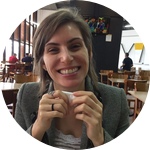Project Results
About This Project
This project is a first step in making the research laboratory a self-sustaining environment. This initiative aims to 3D print necessary laboratory utensils (labware) by using as feedstock the typical products that are discarded on a large scale in the laboratory, allowing their reuse. We will test if the reuse of plastic wastes from laboratories will be compatible with the production of filaments for 3D printing; and if this method we can make a laboratory more self-sustaining.
Ask the Scientists
Join The DiscussionWhat is the context of this research?
This project was born from the participation of the Greenimim Team in the I Nanotechthon of the Laboratory of Nanobiotechnology (LNANO).
In the laboratory we make use of numerous objects on a large scale, like tips and polypropylene tubes. Some experiments can use up to 500 tips and dozens of tubes per day, generating a huge volume of plastic waste in the long term. These residues generate high costs in the treatment processes, as well as negative impacts on the environment. As an alternative, we suggest the implementation of 3D printing so that these materials can be reused in the form of filaments for 3D printing of new objects useful to the own laboratory.
What is the significance of this project?
We want to demonstrate with this project that it is possible to reduce part of the plastic waste and to bring sustainability to the routine in laboratories that require high demand for plastic materials, as a result of daily experiments like biological assays, production and characterization of nanomaterials, and related projects. With this, a cycle of sustainable technological practices will begin to be formed.
What are the goals of the project?
The main goal of this research project is to test if the reuse of plastic wastes from laboratories will be compatible with the production of filaments for 3D printing; and if through this method we can make a laboratory more self-sustaining. We will start by evaluating the carbon footprint of recycling lab materials, before implementing the project. We will then separate (uncontaminated) plastic waste and sterilize them and use these residues in the filament extruder to produce the feedstock for the 3D printer. The CAD models of the objects to be printed will be prepared and printed; printed objects will be tested for their function; and finally we will evaluate the carbon footprint after project implementation.
Budget
For this project to happen, it is essential to have a 3D printer and a filament extruder to develop proof-of-concepts, which are not easily accessible in Brazil and cost a significant amount of money.
Endorsed by
 Project Timeline
Project Timeline
During the entire project period, tests will be carried out with different types of materials that are discarded in the laboratory, creating several CAD models of necessary products for the use and printing of these models.
Jun 01, 2018
Project Launched
Jul 15, 2018
End of campaign
Jul 22, 2018
Calculate carbon footprint before project implementation
Aug 15, 2018
Purchase the machines
Sep 06, 2018
Calibration of the 3D printer
Meet the Team
Affiliates
Affiliates
Affiliates
Beatriz Santos Carvalho
Graduated in Biotechnology and Master in Nanoscience and Nanobiotechnology. She works on research lines with green nanotechnology, microbiology, digital manufacturing and 3D biofabrication. She is co-founder of startups Bioprint3D and CyclePrint3D.
Ariane Pandolfo Silveira
Graduate in Physics, with Master and PhD in progress in Nanoscience and Nanobiotechnology. Works in the engineering of phyto-synthesized metallic nanoparticles and on the characterization of their physicochemical properties.
Julia Fernandes Barros
Undergraduate in Environmental Sciences at Universidade de Brasília (UnB), currently working in the nanoecotoxicology field.
Tatiane de Melo Pereira
I graduated in Biotechnology, currently I do master's degree in nanoscience and nanotechnology. I have worked on some lines of research, with bioactive compounds and molecular biology.
Project Backers
- 52Backers
- 103%Funded
- $1,818Total Donations
- $34.96Average Donation




